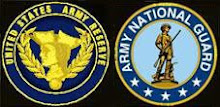By Maj. Elizabeth Gagot
EPI Executive Officer
NEW ORLEANS - The Society for Human Resource Management (SHRM), 61st Annual Conference and Exposition in New Orleans offered Human Resource managers great sessions on intergenerational relationships, employment law and legislation, and skill development.
Diane Spokus, a faculty member at Penn State University, who teaches Health Policy and Administration talked about how managers could "Use mentoring relationships to bridge the Generation Gap."
Spokus said employers understand that employees have distinct personalities, work habits and motivators. She added employers also are cognizant that these differences sometimes cause friction between managers and Generation X born between 1961 and 1980 and Generation Y or Millennials, born between 1981 and 2001, employers who have education and experience unfamiliar to their managers.
She asked how managers use their knowledge of these differences to their advantage?
Mentoring is the key to get the best out of these young employees, Spokus told the crowd Monday. She also reminded attendees that these employees are well versed in new technology - Facebook, Twitter, LinkedIn and blogs.
As for managers, she told them they offer their experience in the industry and company to share with these younger employees. She said managers need to learn to balance the personalities within their team to promote a healthy and productive work environment.
Spokus said that "two way communication" is always important, it allows for both parties to learn from each other and broke it down during the seminar.
Managers should:
Be receptive to new ideas
Be able to build a team that are open to learning new things, successfully employ current company norms/traits to improve team work
Developing team building mechanisms to promote a positive work place
Know the differences between baby boomers, GEN X and Y and how to supervise them
Gen X and Gen Y/Baby Boomers should:
Be receptive to learning from the “older generation”
Be willing to share new technology with supervisors and peers alike
Use technology to promote and improve company performance.
Be honest and straight forward with supervisors
I asked how does HR interact with the military? What are the challenges that are faced by HR personnel when dealing with military veterans?
Employers in the seminar answered that Soldiers are not forthcoming with their military duty scheduled training (battle assemblies, AT, etc) – which affect shift schedules, etc., returning to the two way communication issue.
Questions asked by other patrons:
Why does the military provide such short notice when scheduling Soldiers for duty?
How are managers trained in the military?
How does the military fair with rewarding/disciplining their Soldiers?
Let us know what you think in the comment section.
Subscribe to:
Post Comments (Atom)




No comments:
Post a Comment